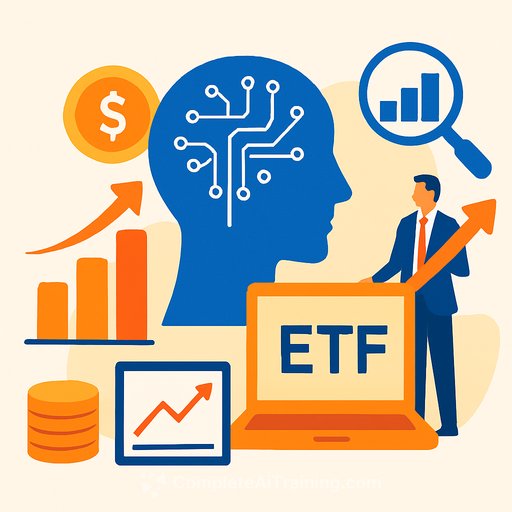AI in Asset Management: The ETF Challenge
Artificial intelligence is becoming essential across industries, and asset management is no exception. For managers aiming to stay competitive, adopting AI tools effectively is a necessity. Yet, when it comes to investment products like exchange-traded funds (ETFs), AI’s impact has been less straightforward.
There has been a surge of interest in AI-themed and AI-powered ETFs, signaling both opportunity and difficulty. While these products promise innovation, they also highlight the hurdles asset managers face in advancing the ETF market.
Why AI Isn’t a Cure-All for ETFs
ETFs are complex financial instruments that require careful strategy and market insight. AI can assist with data analysis and pattern recognition, but it doesn’t guarantee better performance on its own. The hype around AI ETFs sometimes outpaces the actual results.
Challenges include the difficulty of creating AI models that consistently outperform traditional methods and the risk of following trends without solid fundamentals. Asset managers must balance innovation with proven investment principles.
What Management Should Focus On
- Strategic Integration: AI tools should complement, not replace, human expertise in portfolio management.
- Realistic Expectations: Understand the limits of AI-driven investment strategies and avoid overpromising results.
- Continuous Evaluation: Regularly assess AI models for performance and adapt to market changes.
For managers interested in expanding their AI skills and knowledge to improve decision-making and product development, exploring targeted AI courses can be valuable. Resources like Complete AI Training’s latest AI courses offer practical insights suitable for professionals in finance and management.
Ultimately, AI in asset management is a tool—not a silver bullet. Success depends on how well it is integrated with expertise, strategy, and ongoing analysis.
Your membership also unlocks:






